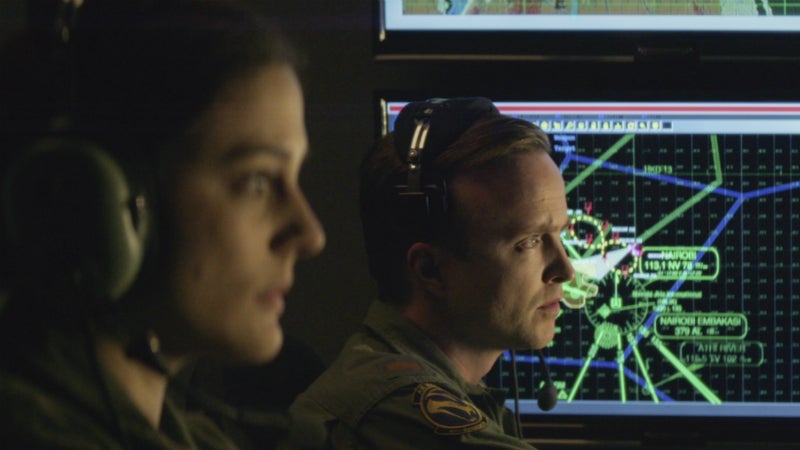| If you want to look for heroes in this movie, you still need to look on the ground |
Eye
In The Sky, the new film directed by Gavin Hood, which
opened this past weekend in US cinemas, depicts in vivid detail a speculative
military action in the
East African theater of the War on Terror, and as such might be considered
somewhat off topic for this website. Rather than offer a
straight review with the usual spoilers, I wanted to share some insights I
took away from it.
 |
| Ohai |
First, the film depicts a highly hypothetical
scenario, and depicts some speculative technology, ranging from insectoid
drones to the HD quality of the imagery
displayed to the commanders. In this regard, Eye In The Sky almost qualifies as science fiction – but it’s that
most modern form of science fiction where the line between the present and
future is so blurred as to be nonexistent - a
William Gibson sort of not-quite-future, unevenly distributed, and so
volatile that we question whether or not it really exists.
| Col. Powell: Hold, Please |
A vexing aspect is the all-too-familiar
depiction of feckless civilian leadership, albeit with a couple of twists.
One is weighing the
optics of collateral damage against a quantifiable security objective, and
trying to figure out which is more politically sustainable. This point is
really only hinted at, and as increasingly important as it is, will likely be dismissed
by audiences. The other is that the inevitable buck-passing chain ends in China
and Singapore, representing
Asia as a sort of Soft Power Supermarket of refuge from the pressures of
the conflict at hand. Such assertions are where the film falls short, and they
would’ve been best left out.
 |
| He's quite good here - not once did he yell "BITCH!" |
Where Eye
In The Sky truly succeeds is in its depiction of the most pernicious and
rarely spoken about aspects of drone warfare: first, as Alexander Cockburn has
pointed out, when made ubiquitous in theater, drone warfare "produces
fantastic antagonism among the targeted population,” creating as many new
enemies as targets destroyed; and second, because of the unique aspects of
drone warfare (you can see the enemy much better than if you were an infantry
soldier on the ground, or for that matter, than the close air support pilots of
previous wars; plus the fact that the enemy can’t even shoot back at you,
further reducing animus), the
very experience of the drone operator produces a heightened sense of empathy
for the enemy.
It is also that empathy that carries the film, along with excellent dramatic performances, from command centre to area of operations. If you haven’t already, go see it.

No comments:
Post a Comment